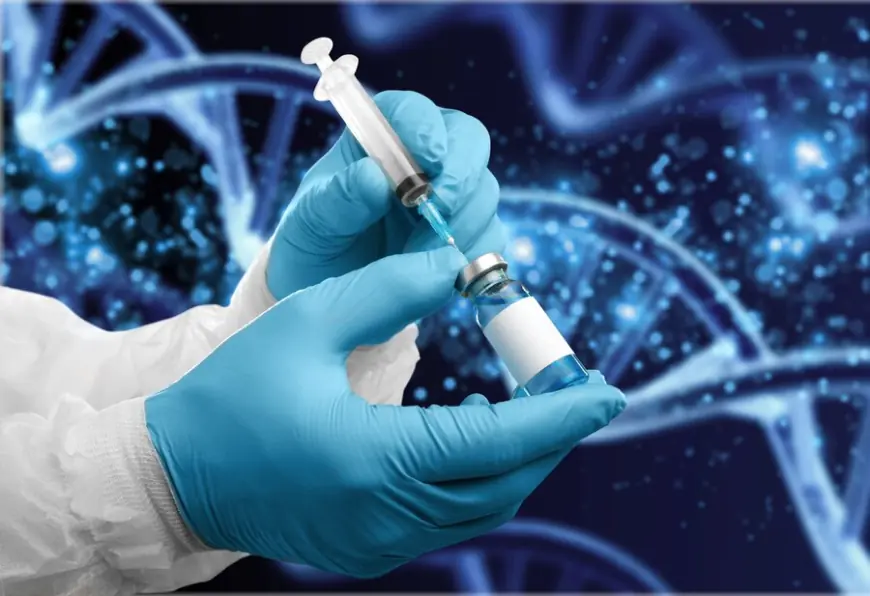Advances and Challenges in Therapeutic Cancer Vaccines
clinical drug development process,clinical drug development,drug development process phases,Therapeutic Indications,Clinical Therapeutic Areas

Introduction
Cancer remains one of the leading causes of mortality worldwide, with an urgent need for innovative treatments. One such promising avenue is therapeutic cancer vaccines, designed to stimulate the immune system to target and destroy cancer cells. Unlike prophylactic vaccines that prevent diseases (such as HPV and hepatitis B vaccines), therapeutic cancer vaccines aim to treat existing cancers by enhancing the body's natural immune response.
Despite substantial progress therapeutic cancer vaccines face several challenges, particularly in the clinical drug development process. This article explores recent advances, the challenges that remain, and their role within the broader clinical drug development landscape.
Understanding Therapeutic Cancer Vaccines
Mechanism of Action
Therapeutic cancer vaccines function by training the immune system to recognize and attack tumor cells. The key mechanisms include:
-
Antigen Presentation: Cancer cells express unique antigens that vaccines help the immune system recognize.
-
Activation of T-Cells: Stimulated immune cells attack cancerous cells.
-
Enhancement of Immune Memory: Ensures long-term protection against recurrence.
Types of Therapeutic Cancer Vaccines
Several types of cancer vaccines are under development, including:
-
Peptide-Based Vaccines: Contain short protein fragments from tumor antigens.
-
Dendritic Cell Vaccines: Utilize dendritic cells to present tumor antigens to T-cells.
-
DNA/RNA-Based Vaccines: Encode tumor antigens directly in genetic material.
-
Whole Tumor Cell Vaccines: Use killed or genetically modified cancer cells to stimulate an immune response.
Advances in Therapeutic Cancer Vaccines
Key Breakthroughs in the Clinical Drug Development Process
-
Personalized Cancer Vaccines
-
Advances in genomic sequencing allow for tailored vaccine formulations.
-
Example: mRNA vaccines customized based on a patient’s tumor mutations.
-
-
Combination Therapies
-
Cancer vaccines are being combined with immune checkpoint inhibitors (e.g., anti-PD-1, anti-CTLA-4) to enhance efficacy.
-
Example: Sipuleucel-T (Provenge) for prostate cancer combined with immune modulators.
-
-
mRNA Technology in Cancer Vaccines
-
The success of mRNA vaccines in COVID-19 has accelerated their use in oncology.
-
Companies like Moderna and BioNTech are leading efforts in this domain.
-
-
AI and Machine Learning in Vaccine Design
-
AI-driven analysis is helping predict tumor antigenicity and optimize vaccine formulations.
-
-
Targeting Neoantigens
-
Neoantigens are mutations unique to cancer cells, making them ideal targets for precision therapies.
-
Challenges in the Drug Development Process Phases
Preclinical Phase
-
Identifying effective tumor antigens remains a significant hurdle.
-
Ensuring safety before human trials is complex due to potential autoimmune reactions.
Phase I: Safety and Dosage
-
Establishing the right immune response without severe side effects is challenging.
-
Variability in immune responses across patient populations.
Phase II: Efficacy Testing
-
Demonstrating clinical efficacy in small patient groups is difficult.
-
Some vaccines work well in preclinical models but fail in humans.
Phase III: Large-Scale Trials
-
High costs and long timelines for recruitment and monitoring.
-
Need for robust clinical endpoints to satisfy regulatory authorities.
Regulatory and Commercial Challenges
-
Approval processes for clinical therapeutic areas such as oncology are stringent.
-
Limited financial incentives due to the personalized nature of some vaccines.
Therapeutic Indications and Clinical Applications
Approved Therapeutic Cancer Vaccines
-
Sipuleucel-T (Provenge) – Prostate cancer
-
Talimogene Laherparepvec (T-VEC) – Melanoma
Vaccines in Development for Key Clinical Therapeutic Areas
-
Lung Cancer: mRNA-based vaccines targeting KRAS mutations.
-
Breast Cancer: HER2-targeted peptide vaccines.
-
Colorectal Cancer: Dendritic cell-based immunotherapies.
Future Perspectives
Innovations on the Horizon
-
Expansion of mRNA vaccine technology in oncology.
-
Integration of cancer vaccines with CAR-T cell therapy.
-
Development of off-the-shelf vaccines for broad patient populations.
Overcoming Barriers
-
Improved patient selection criteria for clinical trials.
-
Enhanced biomarker-driven approaches to assess vaccine efficacy.
-
Increased collaboration between biotech companies and regulatory bodies.
Conclusion
The field of therapeutic cancer vaccines is rapidly evolving, with significant strides in technology and precision medicine. However, the clinical drug development process for these therapies remains complex and requires continued innovation. With advances in clinical therapeutic areas and refined drug development process phases, cancer vaccines hold great promise for transforming oncology care in the coming decades.
As the industry navigates regulatory, clinical, and scientific hurdles, a more personalized and effective era of cancer immunotherapy is on the horizon.
What's Your Reaction?
 Like
0
Like
0
 Dislike
0
Dislike
0
 Love
0
Love
0
 Funny
0
Funny
0
 Angry
0
Angry
0
 Sad
0
Sad
0
 Wow
0
Wow
0




















































